High-tech in model manufacturing
Tebis at PROTO-TECHNIK
Confidentiality is paramount at PROTO-TECHNIK Gesellschaft für Gestaltung technischer Produkte mbH, a design and model manufacturer in Bergkirchen, Germany. The company, which specializes in prototypes, design check models, analysis and repair templates, as well as its Meisterbock gauges, is keen to protect its customers' future products: only those with verified authorization are permitted to tread the company's hallowed halls. The company lifted the veil on some of its secrets for Tebis. The objective of Matthias Sliwanski, managing partner of model and mold manufacturer PROTO-TECHNIK, is the realization of his customers´ visions. He is primarily supported in this task by Peter Krebs, who has been familiar with the company for many years and worked in all of its departments before Sliwanski's father appointed him to the board. Today most customers come from the automotive industry. The giants of the industry, such as VW, Audi and BMW, task this company with realizing designs of their new models and testing them for function and feasibility. However, the company is expanding and is acquiring customers in new areas, especially in aerospace and defense. The current employee base of 62 is expected to grow to more than 100 over the next six years.
Company
PROTO-TECHNIK Gesellschaft für Gestaltung technischer Produkte mbH
Location
Bergkirchen, Germany
Focus
2.5D standard geometry surfaces in aluminum and steel and negative free-form surfaces in plastic
Benefits:
- Accelerated change management
- Shortened throughput times with automation
- Reliability with templates
Sector
Automotive
Model making
Published
2014
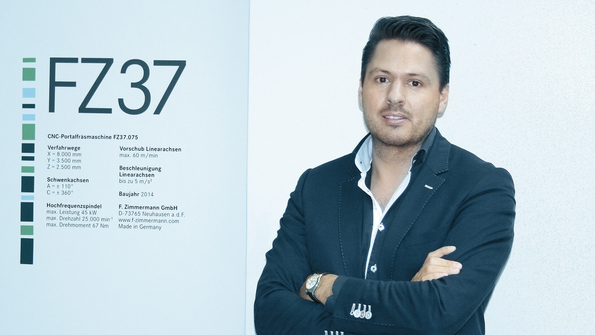
Interviewee: Matthias Sliwanski, Managing Partner
Tebis can do what others can’t.
Pioneer in carbon fiber
When Matthias Sliwanski's father Lutz Sliwanski bought the company 10 years ago, he took on a small model manufacturing company with a total of eight employees. He had previously been employed at Italian auto chassis manufacturer and design company Pininfarina. By having his own company he had fulfilled a dream. with that company. Moreover, he had brought something with him from Italy: carbon fiber.
At the time, this material was not very common in Germany´s model manufacturing. No one in the shop believed in the new material. "Come on, you and your paper-mâché," was a frequent comment at the time. Today CFRP play a decisive role. In many instances, it replaces aluminum in cubing parts and gauges. Carbon fiber may be expensive, but it can be machined much more easily and weighs between 70% to 80% less than aluminum, for example. Due to its insensitivity to temperature, carbon fiber also has a very low thermal expansion coefficient. The risk of accidents when handling parts is reduced and transport is simpler and cheaper; even large parts can be easily moved. Overall manufacturing costs are lower. Lutz Sliwanski’s pioneering spirit is still paying off today.
Tebis meets the highest demands
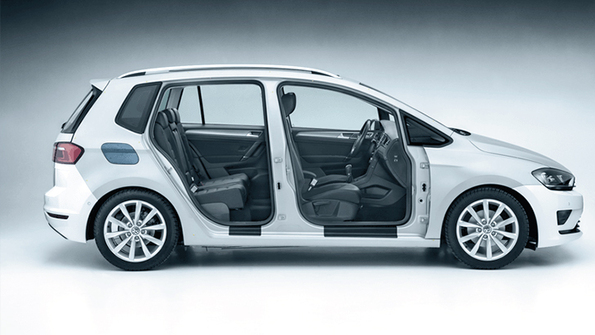
Over the past ten years, the company has not only grown significantly, it has also continuously expanded its product portfolio. At the same time, requirements for quality and reliability have increased significantly. PROTO-TECHNIK now serves clients around the world. Adherence to delivery deadlines and precision are extremely important in this industry. And that´s where Tebis comes into play. Tebis CAD/CAM has been a key factor in the company's fast growth. The designers and programmers initially worked with one Tebis seat and three workstations running an American CAD/CAM software. But Tebis gradually displaced the other provider. One last license is still expiring, and six workstations are now running Tebis. More Tebis workstations are planned for the coming years.
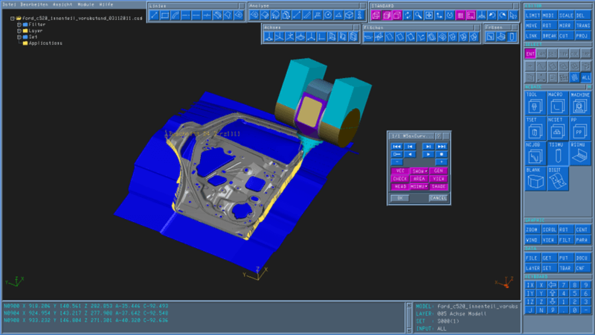
"Our reliance on Tebis today is based on past experience. As requirements became more and more demanding, the other system was no longer sufficiently productive. We work more efficiently and faster with Tebis and can significantly reduce machine run times. In fact, we are up to 50% faster working in 2.5D with aluminum and steel. We've also looked at another German and a British CAD/CAM system. Neither products was convincing when compared with Tebis. Tebis can do what others can't," explains Matthias Sliwanski.
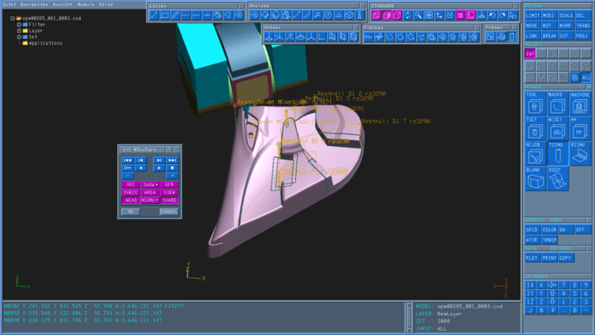
Christoph Rzymbowski, CAM and workshop manager, explains what makes Tebis so unique. "We primarily manufacture 2.5D standard geometry surfaces in aluminum and steel as well as negative free-form surfaces in plastic that is laminated with carbon fiber, milled and trimmed. Surface quality and reliability are especially important. We receive much raw data, class-A and point data, where gaps have to be closed and overlaps eliminated. This is no problem with Tebis."
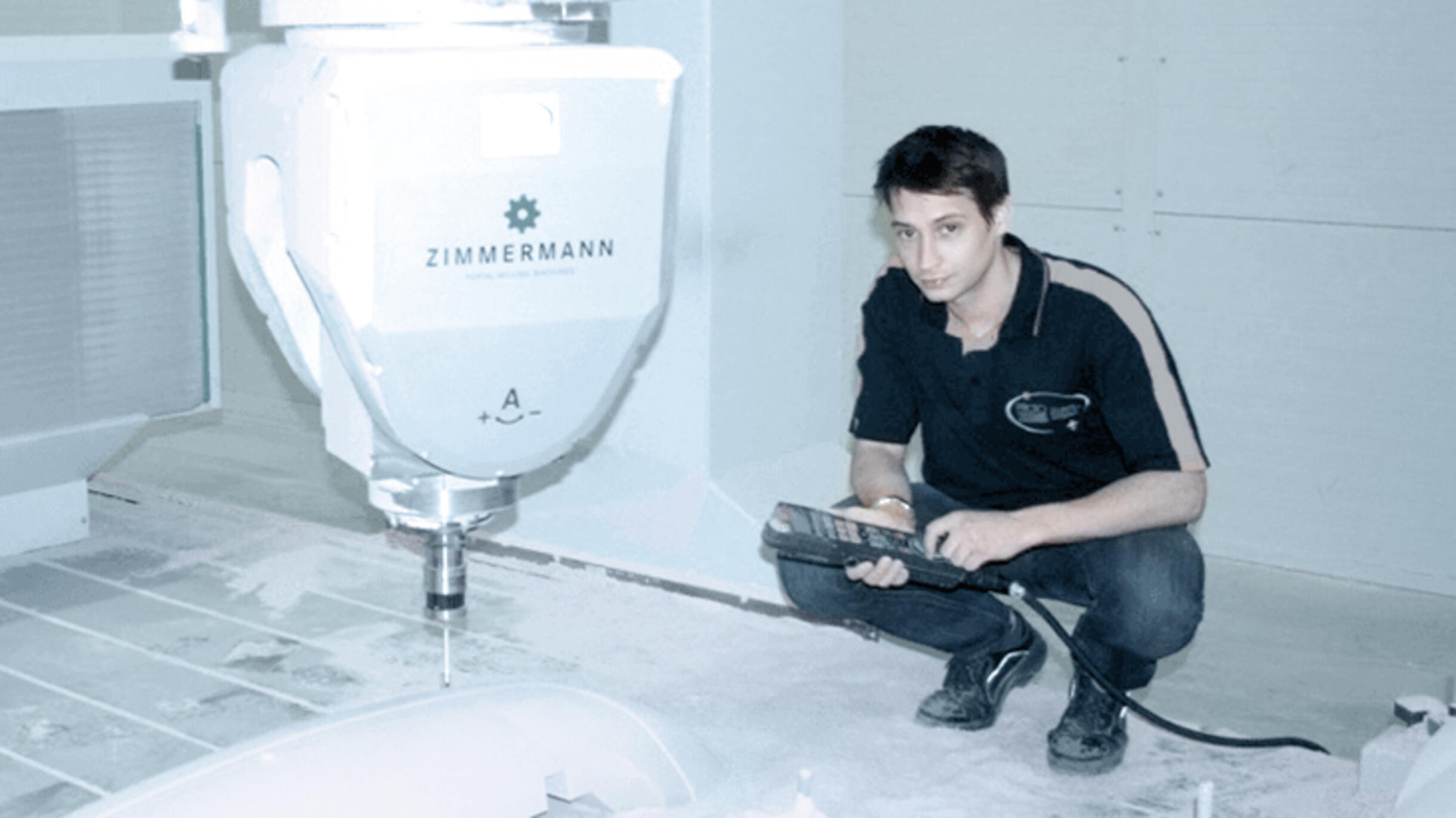
Change management and automation with Tebis
At PROTO-TECHNIK, Tebis templates and change management are especially appreciated . Matthias Sliwanski provides some background information, explaining that the company manages several products, from early development through readiness for series production up to phase-out of the series. During series production over a period of four to five years, cars often receive facelifts that require testing.
One to two years might pass before other products are ready for series production. The designs are repeatedly changed over these long lead times. This is not a problem for Rzymbowski: "Tebis has a significant advantage, because we can implement changes without much effort. If a surface changes slightly, perhaps because a new hole is added, the old version can be quickly replaced with the new surface in the CAD file. Changes are easy even if all of the surfaces have already been calculated, because individual surfaces can be removed, reintegrated and then quickly recalculated."
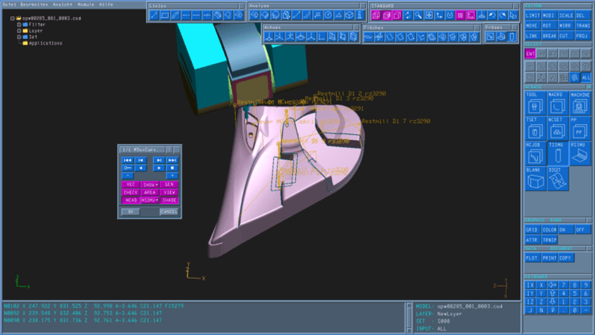
Even Tebis's template technology, which is used all the time at PROTO-TECHNIK, supports the programmers during design changes. "Often only a minor issue needs changing. Since all of the relevant data and values are stored in templates in the Job Manager, changes are quickly made and nothing gets lost. This eliminates a large source of potential errors," says Rzymbowski.
With Tebis into the future
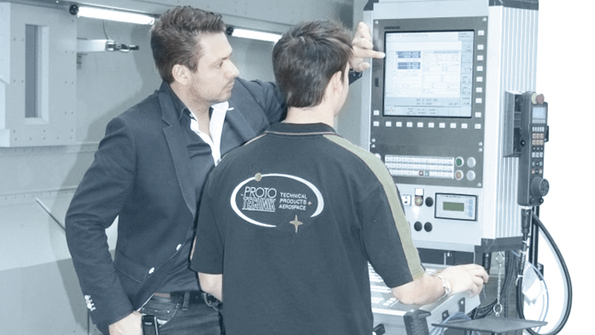
Matthias Sliwanski and Christoph Rzymbowski are very happy with Tebis. They intend to expand their scope of model operations and to add the Tebis 5-Axis Trimming module in the near future. Carbon-fiber parts can then be even more easily machined.
In order to expand his product portfolio, Matthias Sliwanski has acquired a Zimmermann FZ37 5-axis gantry milling machine with an eight-meter travel range in the X-axis. This can be used to fabricate automotive models in 1:1 scale or structural parts for the aerospace industry. Of course, Tebis also has an important role in this initiative: The Tebis Simulator will be used to protect this investment. The software module enables a realistic simulation of toolpaths on the virtual FZ37 which was recreated in detail− with complete collision monitoring of all machine components, including limit switches. This is a simple calculation for Matthias Sliwanski: With the comparatively low investment in the software, Sliwanski is confident that this major capital asset with a seven figure value will pay off.
The order books of the model manufacturer based near Dachau, Germany, are filled through the coming year, and Matthias Sliwanski wants to continue expanding, not just in terms of personnel but also with more machinery and technology. Another building of more than 3,000 m2 is planned to provide space for a second gantry machine with a traversing length of up to 20 meters in the X-axis; up to five more Tebis workstations will also be added over the coming years. The successful history of the collaboration between PROTO-TECHNIK and Tebis is sure to continue for a very long time.


